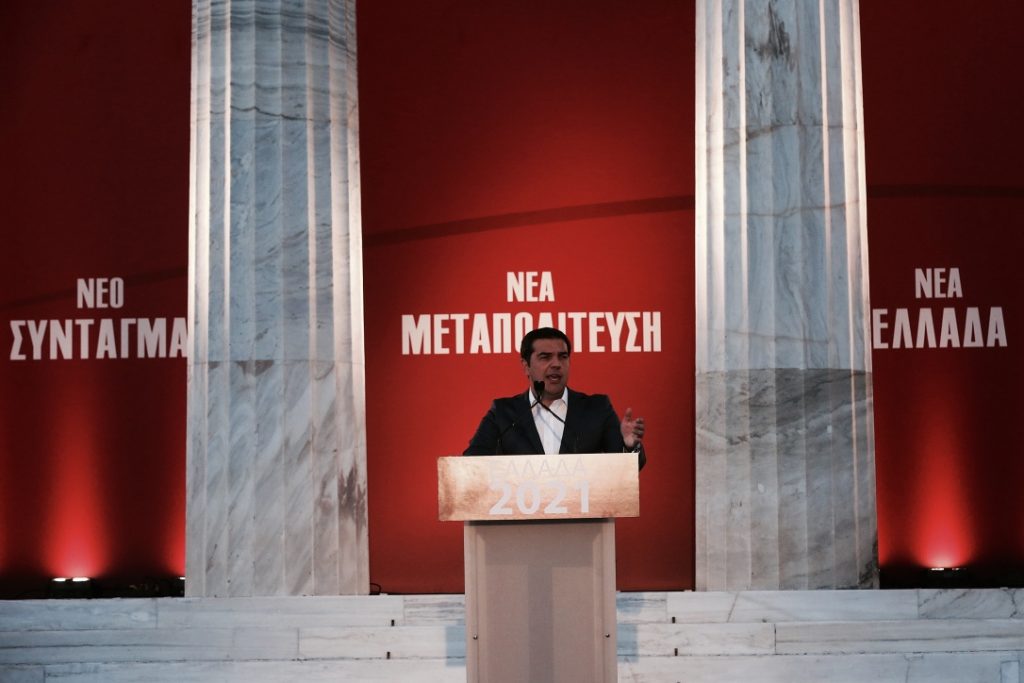
Referencing the 200th anniversary of the foundation of the modern Greek state in 2021, Prime Minister Alexis Tsipras presented in Parliament yesterday his proposals for a revision of the Greek constitution, citing the need to purge the country of the 'old.'
"In reality, we are today addressing a call to all the citizens for a revolution of democracy. For the first time to decide a new constitution with the people, by the people and for the people. For the first time to decide together the kind of Greece that we want," Tsipras said.
The Greek PM insisted that constitutional reform must include the citizens and not be confined to debate between Parliamentarians, saying that in September he will announce a national committee that will initiate a discussion on a national level.
Tsipras said he aims to organise this discussion amongst all municipalities throughout Greece with the participation of academic and social organisations, movements of citizens and groups but also individual citizens. The outcomes of which will then be collected by 13 assemblies in each region of the country.
The only way to emerge from the crisis, once and for all, was to "finish with the old," Tsipras said. "This is the universal demands of our people and at the same time their clear-cut mandate. No government can serve it unless it has the people, the citizens themselves, as its allies," he added.
Some of the proposed revisions include:
- The option for the election of the President directly by voters;
- Enshrining simple proportional representation in the constitution;
- An increase in the President’s powers;
- A clearer separation between the Church and the State;
- Religious neutrality of the State, with the establishment of a civil oath mandatory for elected officials and other public functionaries;
- Abolition of parliamentarians' immunity from prosecution;
- Establishment of a special judicial body to pass judgement on bills already made into law;
- Limit the maximum term of MPs to not more than two successive Parliaments;
- The post of prime minister to be confined to an elected official or serving MP, with the exception of caretaker premiers;
- Expressly forbid the removal of state control over essential public goods (water, electricity.)

